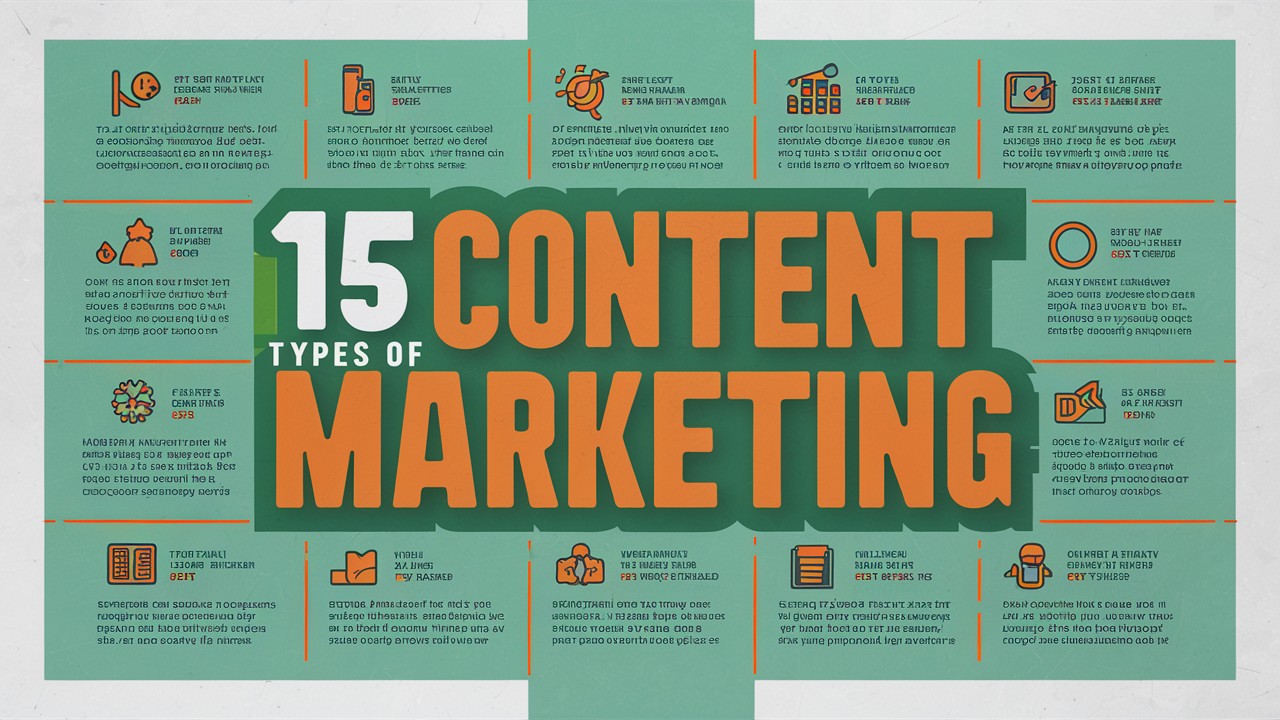15 Effective Types of Content Marketing
The quintessential content marketing tool, blogs provide a platform for businesses to share valuable insights, build thought leadership, and enhance search engine visibility. Businesses that blog regularly are generating 67% more leads than those that don’t (Source: DemandMetric). Additionally, companies with blogs produce an average of 434% more indexed pages on search engines (Source: HubSpot). To optimize your blog strategy, focus on crafting useful content personalized to your audience’s demands and interests. Make sure to utilize SEO best practices, which include keyword research and internal linking, to improve search engine rankings and drive organic traffic.
While being a one of the traditional content marketing types, Newsletters are an excellent way to nurture relationships with your audience, keeping them informed and engaged with curated content delivered straight to their inbox. What’s mind-boggling is that email marketing has a staggering 4,200% ROI, with personalized emails delivering six times higher transaction rates (Source: Campaign Monitor).
Ebooks offer an in-depth exploration of a specific topic, providing readers with comprehensive and authoritative content. The plan is to offer helpful resources in exchange for a prospect’s contact information that can generate leads and grow email lists. Besides generating leads, it’s important to note that approximately 60% of buyers become interested in a product after reading content about it (Source: Demand Gen Report).
Guides are comprehensive resources that provide step-by-step instructions or advice on complex topics. They act as comprehensive roadmaps, providing step-by-step solutions to complex problems.
Webinars are online events, either live or pre-recorded, where corporations interact with their audience in real-time. Sharing expert insights and fostering interactive discussions boost brand authority and drive audience loyalty. Promote your webinars across multiple channels and follow up with attendees afterwards to maintain engagement and nurture leads.
Case studies showcase real-world success stories, building trust in your brand’s capabilities. In some businesses, they are almost mandatory, considering that around 78% of B2B buyers rely on case studies during the research phase of the purchase process (Source: MarketingSherpa).
Online courses offer a structured learning experience, allowing businesses to share their expertise and help their audience develop new skills. Offering online courses will enable firms to educate their audience, establish authority, and foster brand loyalty.
Whitepapers help your brand become a respected authority by providing in-depth, data-driven analysis. B2B buyers cite whitepapers as one of the top 3 most influential content formats (Source: Demand Gen Report). Write authoritative whitepapers that address your audience’s pain points and provide valuable insights. Use these resources as powerful lead magnets to capture contact information and nurture prospects.
Around 96% of marketers consider contests to have great potential for boosting customer retention (Source: GoCRM). Contests and giveaways encourage audience participation, generate buzz around your brand, and provide valuable user-generated content. These engaging campaigns expand your reach, increase brand awareness, and foster a sense of community.
It’s crucial to explore innovative strategies that engage your audience and deliver tangible results. Let’s dive into some unconventional approaches supported by compelling statistics and discuss how to make the most of them.
UGC fosters a sense of community and enhances trust in your brand. A staggering 85% of consumers find UGC more influential than brand content when deciding what to buy (Source: Stackla). Encourage UGC by hosting creative contests or challenges and feature user-submitted content on your platforms. Always credit the creators and engage with users to make them feel valued and connected to your brand.
Checklists provide practical, actionable guidance on specific tasks or challenges, offering your audience a quick and convenient resource. These handy tools can establish your brand as a helpful problem-solver and encourage repeat visits to your site.
Podcasts offer a personal way for people to listen to content whenever they want. In 2020, more than half of the people in the US listened to podcasts. Creating a unique podcast will build a more robust connection with your listeners, who will become your future customers. Focus on a niche topic, invite engaging guests, and promote your episodes across multiple channels. Monetize your podcast through sponsorships and collaborations to amplify your reach and establish your brand’s presence.
Incorporating humor and creativity through memes can humanize your brand and boost audience engagement. When done right, memes can result in an exponential rise in organic traffic, shares, and overall brand awareness.
Interactive content, such as quizzes and polls, drives user engagement and yields insightful data. A whopping 93% of marketers rate interactive content as highly effective at educating buyers (Source: Content Marketing Institute). Design unique interactive experiences tailored to your audience’s interests and offer personalized outcomes to captivate users. Incorporate these elements into your website, emails, and social media to enhance user experience and gather valuable insights for future marketing efforts.
Mastering content marketing is key to standing out in today’s crowded digital landscape. This blog post has delved into 15 effective content marketing strategies to help reignite your brand in 2024. There’s a strategy for every brand, from traditional methods like blogs and newsletters to innovative approaches like user-generated content and podcasts. By diversifying your content and engaging your audience across multiple channels, you can establish authority, nurture relationships, and ultimately drive business growth.

